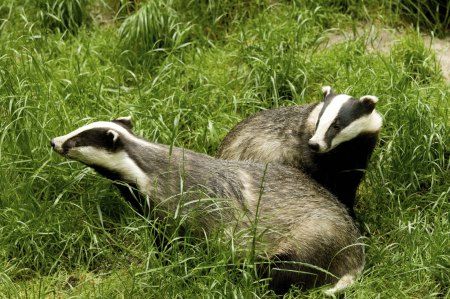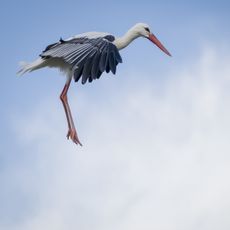Badger culling to be legalised
A cull of badgers in areas blighted by Bovine TB looks set to go ahead, with the onus on the farmers in affected areas


Under new legislation recently approved by the Environment Secretary Caroline Spelman, farmers are to be given the power to cull badgers in the areas worst hit by Bovine TB in south and south-west England.
Whilst the precise details of the scheme will be put to public consultation later this month, it seems apparent that a policy of widespread culling is to be enacted in the near future. The scheme will grant farmers the power to kill and vaccinate badgers, both on their land and within a fifty-mile radius, to try and combat the spread of Bovine TB.
The disease has already led to the slaughter of one hundred and fifty thousand cattle in the last decade; a strategy that has, according to The National Farmers Union (NFU), cost the treasury around £90m in compensation payments over the last year alone. It is pressure from farmers' groups, as well as information provided by a number of scientists, that has ultimately led to the coalition deciding to adopt the policy.
Earlier this year (Feb) NFU Deputy President Meurig Raymond stated ‘We firmly believe that a badger cull is needed now to reduce the level of infection in high incidence areas. This is already accompanied by a raft of cattle controls, which are based around surveillance and culling, and have proved effective at disease eradication in areas where cattle are the only disease reservoir.
‘We are confident that a combined policy of cattle control and badger culling, with the oral bait badger vaccine being introduced in four to five years as a culling exit strategy, would provide the means necessary to eradicate this pernicious disease for good.'
However, culling doesn't have a happy history; in Wales a cull was halted in July amid protests from welfare activists, led by The Badger Trust. They pointed to the fact that there was no clear evidence to suggest a policy of culling would be effective against the spread of the disease. This is an argument that has already been voiced in England after a decade-long study concluded in 2007 that culling could not ‘meaningfully' control the disease.
However the Government clearly thinks action must be taken against the spread of the disease. The official statement reads: ‘The government has committed, as part of a package of measures, to develop affordable options for a carefully-managed and science-led policy of badger control in areas with high and persistent levels of bovine TB.'
Sign up for the Country Life Newsletter
Exquisite houses, the beauty of Nature, and how to get the most from your life, straight to your inbox.
Whilst it will be interesting to see the final details of the policy that emerges later this month, it does seem that the coalition have decided a policy of badger culling is the solution.
Country Life is unlike any other magazine: the only glossy weekly on the newsstand and the only magazine that has been guest-edited by HRH The King not once, but twice. It is a celebration of modern rural life and all its diverse joys and pleasures — that was first published in Queen Victoria's Diamond Jubilee year. Our eclectic mixture of witty and informative content — from the most up-to-date property news and commentary and a coveted glimpse inside some of the UK's best houses and gardens, to gardening, the arts and interior design, written by experts in their field — still cannot be found in print or online, anywhere else.
-
 A well-connected rural playground with 23 acres on the edge of the South Downs National Park
A well-connected rural playground with 23 acres on the edge of the South Downs National ParkOld House Farm is an impressive family home with a wealth of amenities that would inspire any rural passion.
By Arabella Youens Published
-
 The UK gets its first ‘European stork village’ — and it's in West Sussex
The UK gets its first ‘European stork village’ — and it's in West SussexAlthough the mortality rate among white storks can be up to 90%, the future looks rosy for breeding pairs in southern England.
By Rosie Paterson Published
